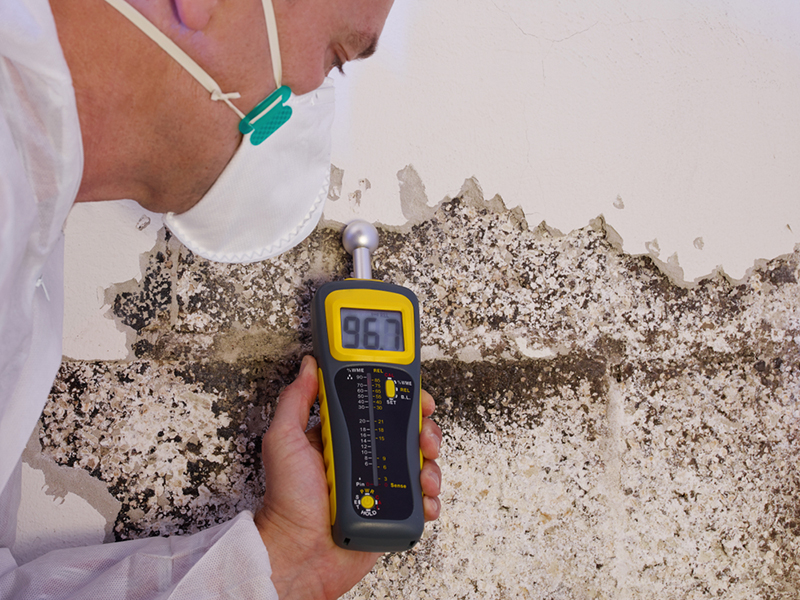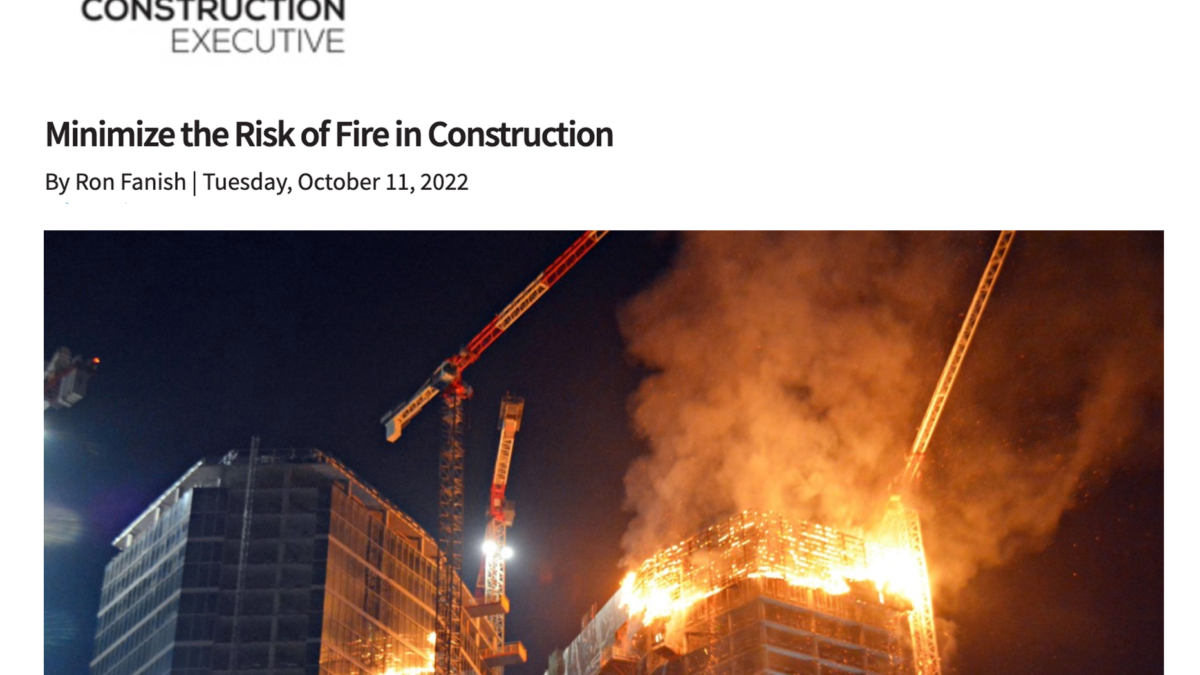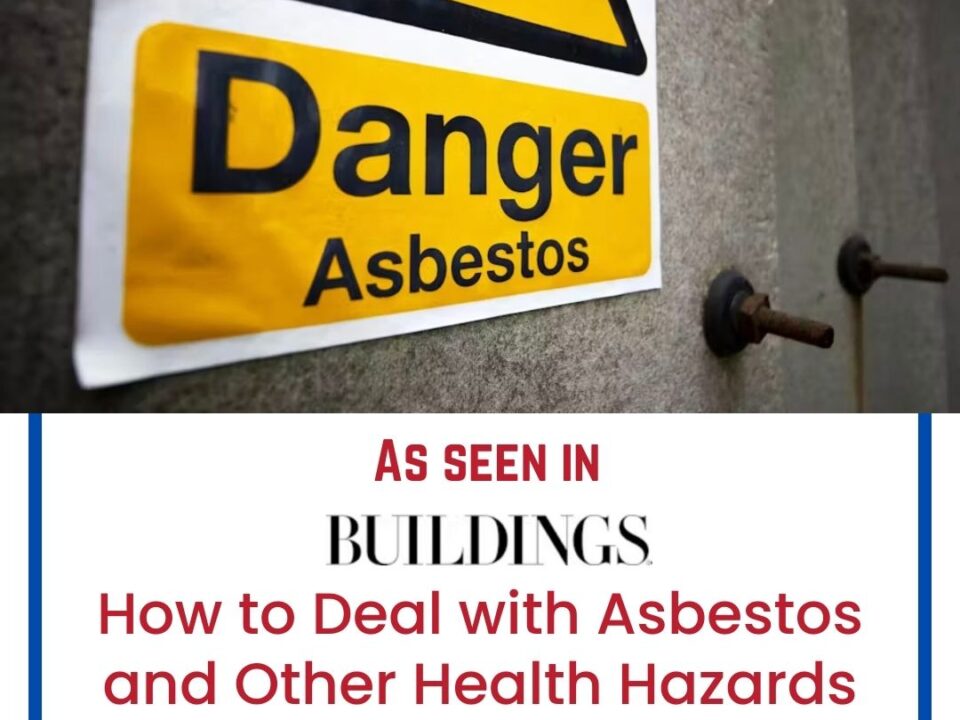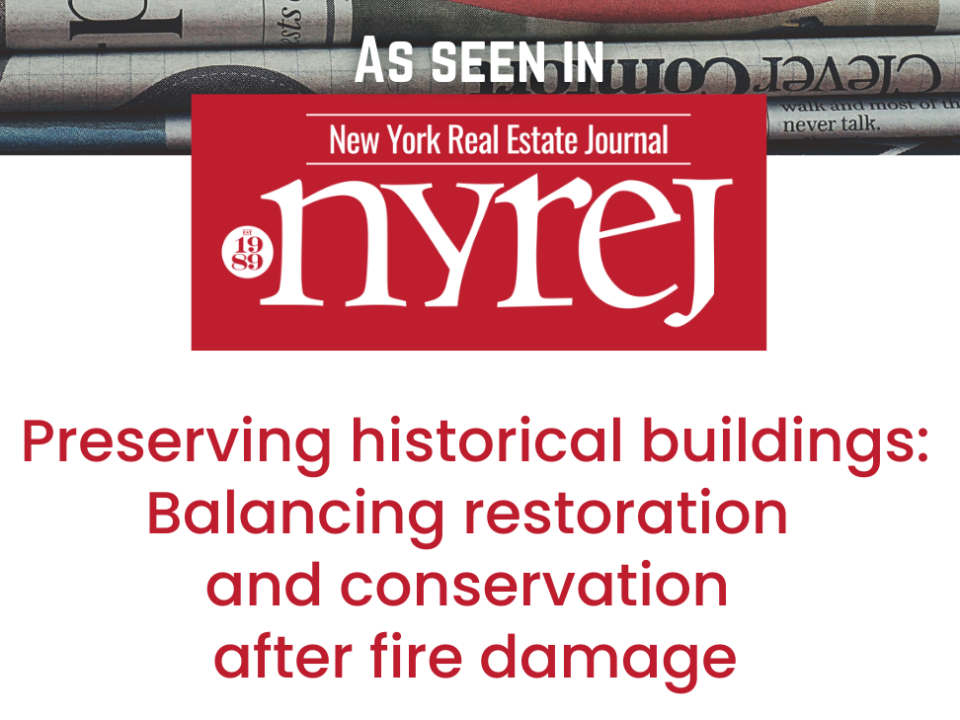
Five things commercial property professionals need to know about mold – by Ron Fanish
August 9, 2022
How technology is transforming the restoration industry – by Ron Fanish
November 9, 2022Written by Ron Fanish, Co-Owner of Rainbow Intl Restoration of Westchester
Minimize the Risk of Fire in Construction
Construction sites are supposed to be places of creation, not destruction. Yet, sometimes, that isn’t the case. If construction professionals aren’t careful, fires can break out on site, putting workers in serious danger and costing a project serious time and money.
Construction site fires can be caused by surprisingly common and simple risks, from the use of electrical equipment like powered hand tools and generators, flammable or combustible materials like gasoline containers, or combustion engine equipment like excavators. So, what can construction professionals do to avoid fires in the workplace and ensure that their sites are fireproofed and safe? Here are six strategies to follow.1. HAVE PERMITS IN ORDER
Before starting the next project, ensure that any and all “hot work” permits are obtained before breaking ground. A hot work permit is necessary for any project that involves an open flame or otherwise produces heat or sparks. This might entail welding, brazing, cutting, grinding or related activities. In the event that a fire does break out, it will be essential that this permit was in hand.
2. KNOW ELECTRICAL BEST PRACTICES
There are a handful of electrical best practices when it comes to construction sites. For example, use only appropriately rated fuses. Never use extension cords as substitutes for wiring improvements. Always check wiring and hazardous locations where the risk of fire is especially high. And remember to check electrical equipment to ensure that it is properly grounded or double insulated.
3. BE CAREFUL WITH PORTABLE HEATERS
If a contractor is planning on deploying portable heaters at your next construction site, make sure to take all the necessary precautions. Portable heaters keep a space warm but can also be a common cause of fires. Confirm that any heaters you use have tip-over protection so that they automatically shut off if the unit falls over. Also, be sure that there's enough space between the heater and any combustible materials that are on the worksite.
4. BE PREPARED TO DETECT FIRES AND EXTINGUISH FLAMES
If a fire detection system is just employees’ eyes and noses, that’s not enough. Every construction site should have an alarm system in place to alert workers of a fire. And every construction site should also have a fire suppression system, such as overhead sprinklers at commercial jobsites and smoke alarms in residential properties, that will be triggered or turned on automatically in the event of a blaze. These sprinklers can extinguish a fire quickly and minimize its overall danger and damage. Lastly, ensure portable fire extinguishers are located throughout the site that are ready to use and regularly inspected.
5. HAVE A PLAN
Even with the best protection, a fire can still occur. For that reason, have a clear, detailed plan in place should a blaze break out on the construction site. For example, all workers on site should know exactly how to evacuate, how to alert others and how to take a headcount. Headcount is especially important as it ensures that everyone has successfully left the building and is out of harm’s way. You'll also want to make sure you have an emergency contact plan—that is, someone who is designated to dial 911 and summon fire professionals to the scene.
6. NO SMOKING
This last strategy is just two words but no less important than the previous strategies. Keep cigarettes and other smoking devices far away from construction sites.
Fires can be devastating at construction sites—to the people who work there and to the structure itself. And while there's no way to guarantee a fire will never break out, construction professionals following these strategies can ensure they eliminate the risk of fire to the best of their ability. When a construction site is adequately prepared, fires become a lot less common and a lot more preventable.



